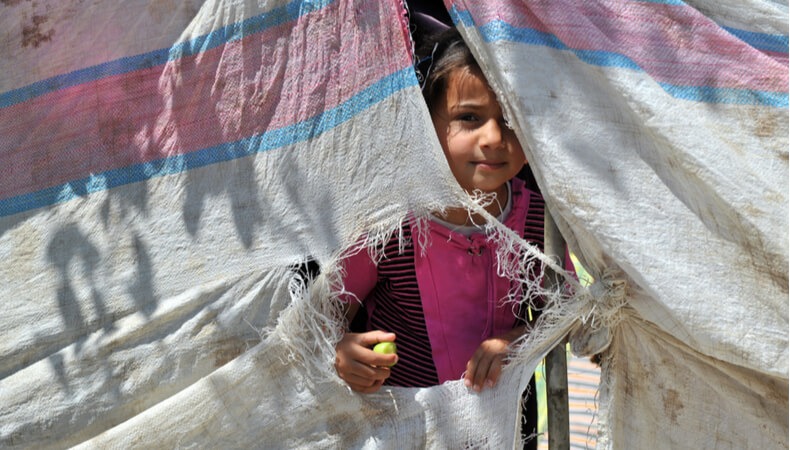Syrian Refugees in Lebanon receive aid for their mental health

“I felt the world was over. When I got out, I saw smoke and broken glass and couldn’t find my daughter,” Fahima explained a Syrian lady. “I felt the world was over. I felt something that cannot be described.” The little girl was later found hiding behind a large pot with plants in front of a nearby building and reunited with her mother. But it soon became very clear that the powerful explosion had profoundly affected Manar’s mental well-being.
She refuses to sleep and does not leave her mother. The once brave little girl with distinctive blue eyes and blonde curls now refuses to sleep unless her bedroom door is locked, is terrified of any loud noise, and refuses to part with her mother. “It’s changed. He has fears that he didn’t have before,” Fahima said. “If she hears a sound, she immediately puts her hands on her ears, and says there will be another explosion. But it wasn’t like that before. She was once very brave.”
Read Also | United States threaten Iran, Venezuela Military Strikes
Worried about her daughter’s state of mind, Fahima turned to UNHCR, the UN Refugee Agency, asking for help. She was referred to the Makhzoumi Foundation, a local NGO partner of the agency, which provides mental health services to Syrian refugees and vulnerable Lebanese with UNHCR funding, and was given an appointment to see a psychologist.
In doing so, the UN agency reaffirms its commitment to address the mental health needs of refugees, displaced persons, and stateless persons, as well as vulnerable members of host communities. The effort, therefore, is to integrate mental health and psychosocial support. That has become increasingly important during the pandemic, which threatens to trigger a mental health crisis due to growing isolation, loss of livelihoods, and uncertainty about the future.
Across the Middle East and North Africa region, UNHCR and its partners have stepped up psychosocial support activities in response to alarming reports of growing mental health problems among forcibly displaced people. These include a threefold increase in reports of suicide and self-harm at the UNHCR national call center in Lebanon. Following the explosion two months ago, psychologist Mirna Mouawad said she saw several children who lived near the blast area enter her clinic with symptoms of post-traumatic stress disorder. “These children show signs of fear: they cry, they scream, they stay very close to their parents,” Mouawad said. “They have nightmares at night, some wet the bed.”
During her sessions, Mouawad uses storytelling to explain to children that, while traumatic events such as the explosion can happen, it is now a thing of the past and teaches them how to try to overcome their fears. He said the level of suffering can be high among Syrian refugees who fled the conflict at home and came to Lebanon to find safety.” They were among the most affected by this situation because the current event triggered memories of their previous experiences,” Mouawad explained.
Although Manar herself was born in Lebanon and has no experience of the conflict in Syrian, her young age in itself represents a therapeutic challenge. “When a person experiences traumatic events at a young age, it is more difficult to treat because it occurred at an age where they cannot express themselves well,” said Mouawad. “For this reason, we try to make Manar express herself through drawing, playing, sometimes we also use music.” Fahima says that after only three sessions, she has noticed a positive change in Manar when she is with the psychologist, but that she still reverts to her frightened behaviour as soon as they get home.




